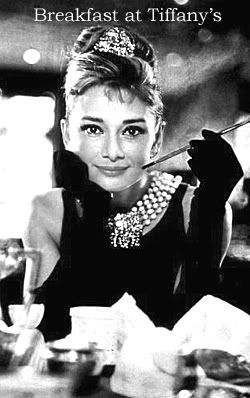The Coming Split Of Political PartiesOver the years, people have fantisized about a legitimate third political party in American politics that would blend social moderates (even some liberals) with fiscal conservatives -- forming a
center-right coalition.
Some third-party candidates have affected U.S. presidential elections, but their influence has been based more of a cult of personality than an organized effort. George Wallace and Ross Perot are perfect examples. (In '68, Wallace captured 13.5 percent of the popular vote and 46 electoral votes. Perot received 19 percent of the vote in '92, although he won no electoral votes.) At other times, third-party candidates have sucked away valuable votes -- and possibly cost one of the major parties a victory. (Ralph Nader in 2000; Perot -- again -- in both '92 and '96.)
The third-party buzz is again becoming popular as the 2008 presidential jockeying begins. Both the Democrats and Republicans could face splits. The Democrats split began years ago, and it continues to divide along Left and Far Left lines. Think Hillary Clinton and Russ Feingold. Over the years, moderate Democrats (i.e., socially and fiscally more conservative) have been pushed from their party and make up a sizable swing vote. Think Bill Clinton's two terms as a positive for Dems; Ronald Reagan's two terms when the tide flows the other way.
Republicans are due a fracturing among its uneasy alliance of social conservatives, tax-cutters, small-government types and wealthy contributors. Moderate Republicans (i.e. the country club types who don't want to pay a lot of taxes but aren't too concerned with prayer in school) were given the nudge a few years ago, although they still hang around because they have nowhere else to go. The anti-big government group/"Don't tread on me" crowd has remained fairly loyal to the GOP (except for a few hundred thousand who danced with Perot). But with the free-spending Republicans and bedroom-peekers in charge of the White House, the Senate and the House, those with libertarian tendancies are casting an eye elsewhere.
New York Post columnist Ryan Sager has a
new book coming out tackling this very issue. Its title: "The Elephant in the Room: Libertarians, the Christian Right, and the Battle for the Republican Party."
For decades, the Republican Party has been a marriage of convenience, with the smaller government and moral values wings setting aside their myriad of differences to have a shot at power. But, in this surprising new book, rising star New York Post columnist Ryan Sager predicts divorce in their future. Why? Turns out, social conservatives have have been seeing someone on the side. Starting in 1999, polls began detecting a new kind of Republican. Sometimes called big government conservatives, populists, and even Security Moms, this group is mostly female, southern, religious, and confident that government is the solution, not the problem. Bush's policies have been created to appeal to this demographic, and his deficits, wiretappings, and gay marriage rhetoric are driving the libertarian crowd to distraction.As THE ELEPHANT IN THE ROOM explains for the first time anywhere, this could cause real trouble for the GOP. Not only would infighting lessen the party's efficient image, the people ready to jump ship control much of the campaign cash (on Wall Street) and swing votes (in "leave us alone" states like Colorado, Ohio, Montana, and Arizona). The Republicans don't want to admit it, but their string of titanic victories is heading for an electoral iceberg.It looks like an interesting book, and over at
Real Clear Politics, Sager is writing more about libertarians and their lack of political muscle-flexing: (Hat tip:
Instapundit)
That, of course, gets to the question of whether a bunch of individualists can ever be organized. A man who should know a little about that, the Cato Institute's executive vice president, David Boaz, tells two stories. In one, a man wouldn't come to a rally for 1980 Libertarian Party presidential candidate Ed Clark because he had to look at his sister-in-law's car. In another, a man skipped a rally at the 1984 Democratic convention in San Francisco because he had a more pressing engagement ... in a hot tub."I think libertarians are looking at their sister-in-law's car, instead of going to political meetings," Boaz says. "And there are also libertarians who are in hot tubs in Sausalito." These may seem like small things, Boaz argues, but the cumulative effect is that people who don't care much for government are the hardest to convince to care about changing it.The challenge, then -- for those who don't want to see the Republican Party succumb once and for all to big-government conservatism and who don't want to see it become overrun with populists lacking in respect for taxpayers' money and individuals' right to be left alone -- is either to organize existing libertarians more effectively to vote and contribute time and money as a bloc or to identify new constituencies with an overriding interest in remaking the time bomb we call the New Deal (everyone under 40 comes to mind).Laura Bush is
doing her part:
Perhaps the most influential person in the president's life is calling on Republicans to leave the issue of gay marriage and a proposed amendment to the constitution out of political strategies for the coming year. That person is Laura Bush.According to the Associated Press, the first lady told Fox News Sunday that while she's certain the American people want a debate on the issue of gay marriage, she doesn't think "it should be used as a campaign tool, obviously."
"It requires a lot of sensitivity to just talk about the issue -- a lot of sensitivity," she said.I like her more every day. Although she now is in closer step
with Dick Cheney than her husband, which must make people on the extreme sides of both parties scratch their heads after they thought they'd figured out who to hate and who to love.
Cheney-Bush '08? Laura Bush, that is.
